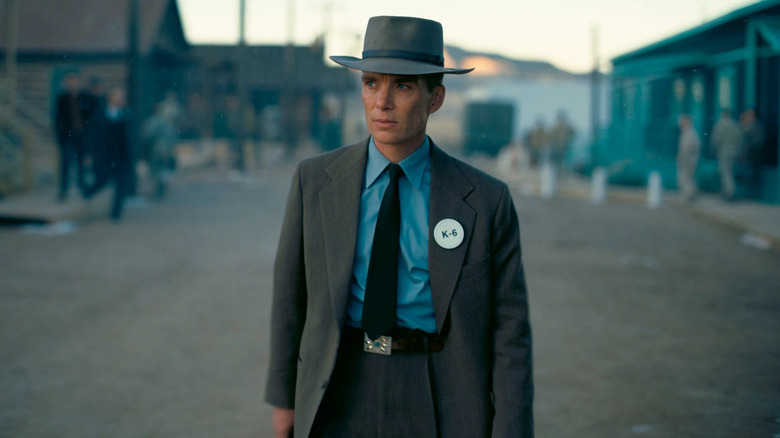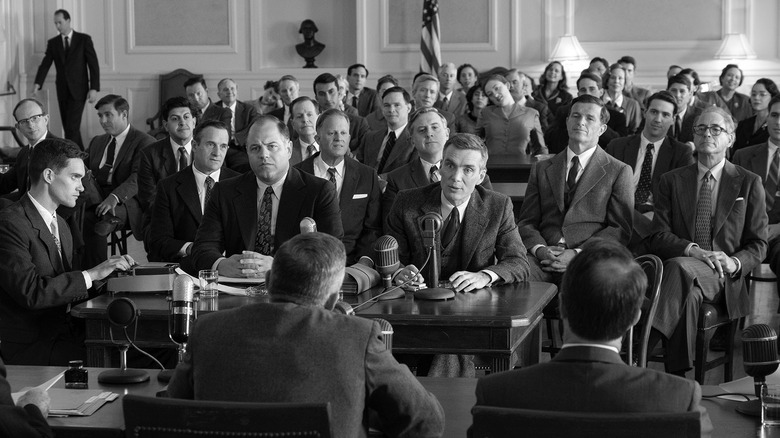Oppenheimer's Japan Release Drawing Mixed Reactions - Here's What People Are Saying
Christopher Nolan's "Oppenheimer" has finally been released in Japan, and understandably, it's stirring up mixed feelings among first-time viewers. Filmgoers quoted by Reuters emerging from opening night screenings in Hiroshima held on March 29 report that they could appreciate the technical aspects of the film without stomaching certain narrative decisions. "Of course, this is an amazing film which deserves to win the Academy Awards. But the film also depicts the atomic bomb in a way that seems to praise it, and, as a person with roots in Hiroshima, I found it difficult to watch," said Kawai, who lives in Hiroshima. "I'm not sure this is a movie that Japanese people should make a special effort to watch."
Fellow filmgoer Agemi Kanegae admitted to enjoying it while touching on the film's conclusion. "The film was very worth watching. But I felt very uncomfortable with a few scenes, such as the trial of Oppenheimer in the United States at the end."
Forbes reports that "Oppenheimer" is being distributed in the country by Bitters End, an independent Japanese film distribution company. It was not released into the country without any forewarning; Japanese social media posts indicate that placards with printed warnings about the film's use of nuclear test footage were present in theater lobbies. While "Oppenheimer" is fairly accurate when parsing the reality of Robert J. Oppenheimer's life, some affected by the blast — directly or indirectly — expressed disappointment in it.
Oppenheimer definitely has its critics in Japan
Emotions were mixed for some of Hiroshima's older citizens who lived through the war and were directly affected by the bomb and its aftereffects. "There could have been much more description and depiction of the horror of atomic weapons. From Hiroshima's standpoint, there wasn't enough about the horror of nuclear weapons, but I would encourage people to go and see it," former Hiroshima mayor Takashi Hiraoka told The Guardian after attending a screening earlier in March.
Atomic bomb survivor Teruko Yahata told Reuters she was excited to see the film, admitting she feels some empathy for the real-life J. Robert Oppenheimer. She even hopes a new anti-nuclear fervor might emerge from further screenings. Professor Masao Tomonaga, also a survivor, told The Guardian that he thinks it might inspire future generations to take up the cause because those who survived Hiroshima and Nagasaki are elderly. "[I]t's now up to future generations to decide how to rid the world of nuclear weapons," he said. Meanwhile, Toshiyuki Mimaki expressed disappointment that the film did not show the bombings or their aftermath. "It's important to show the full story, including the victims, if we are going to have a future without nuclear weapons."
Audiences all over Japan — and in the United States — can judge for themselves whether the film feels true to life by watching "Oppenheimer" at home or in select theaters.

